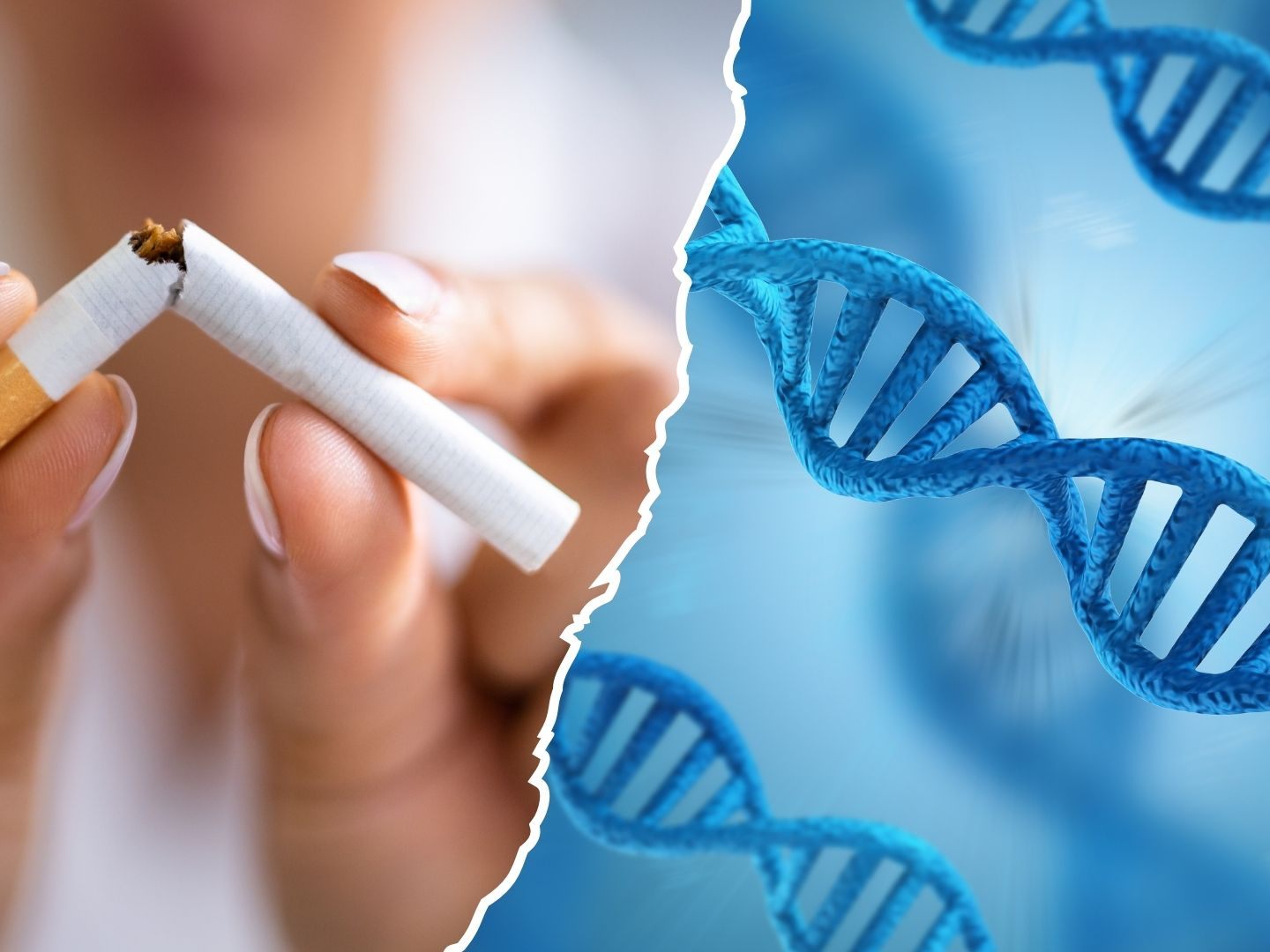Smoke-Free into the New Year: Do Our Genes Make New Year's Resolutions More Difficult?

The New Year's resolution to quit smoking fails for many - despite the widespread health risks. According to Statistik Austria, around 30 percent of smokers in Austria want to keep their hands off cigarettes at the turn of the year, but mostly in vain.
Genes Influence Our Addiction Behavior
But why do some people find it so hard to quit smoking while others seem to be able to quit from one day to the next? The answer is not just a matter of willpower, it also lies hidden in our genes, says Daniel Wallerstorfer. The gene expert and molecular biologist has been researching for many years how health, nutrition, and genetics are interconnected.
"Every person has a 'nicotine or good mood receptor' that consists of various genes such as Alpha 3, Alpha 5, and Beta 3. These influence how easily one becomes addicted, how difficult it is to quit smoking, or how dizzy one gets from the first puff. The composition of the receptor can vary from person to person - so some react more strongly to nicotine than others. For some, the addictive substance triggers a stronger feeling of happiness, which is all the more difficult to get away from," says Wallerstorfer.
Those with an unfavorable genetic predisposition also struggle longer with withdrawal symptoms such as sleep disorders, irritability, or increased appetite. "Whether you are one of those people who can easily smoke three cigarettes at a party and then not touch a cigarette for weeks is highly individual," emphasizes the expert.
When Genes Make Withdrawal Harder: 15 Percent of Smokers Struggle More
A central reason why many find quitting smoking so difficult lies in the connection between nicotine and stress management. "Nicotine directly docks onto receptors in the brain and triggers an immediate feeling of happiness, which the body remembers and wants to evoke again and again," explains Wallerstorfer. This artificial feeling of happiness provides quick relaxation, especially in stressful situations. Those who want to quit smoking must be patient, because: "The brain regulates itself to maintain a balanced mood level," the expert explains and elaborates: "Over time, our brain learns to generate 'good mood' and well-being on its own. Stress regulation can then also resume its natural course."
However, it is particularly difficult for 15 percent of smokers who have a genetic variation in the COMT gene. "This slows down the breakdown of dopamine, the neurotransmitter responsible for feelings of happiness. While this may seem positive at first glance, the brain becomes unbalanced during withdrawal: Since the brains of those affected rely on the neurotransmitter being available for longer, the sudden drop in dopamine during nicotine withdrawal is particularly significant. The body finds it harder to compensate for this deficiency, which makes the withdrawal symptoms more intense. The result: nervousness, sweating and sleep problems can occur particularly strongly," says the researcher.
No matter what genetic predisposition smokers have, quitting smoking can be challenging for everyone. In addition to knowledge about one's own genetics, diet plays an important role. "A healthy diet promotes general well-being and helps to be more balanced even in stressful situations. This can prevent the need to reach for a cigarette under high stress."
Successfully Quitting Smoking with Genetic Analysis
Those who want to quit smoking need more than strong will, especially if their own genetics are disadvantageous. A genetic analysis by NovoDaily can determine how effectively the body can detoxify harmful substances from combustion, such as cigarette smoke. Individuals with certain genetic defects in the CYP1A1 and CYP1B1 genes have an increased risk that the toxins in smoke will be quickly converted into carcinogenic substances.
Knowing how your own genes work in detoxification helps to better understand the health significance of quitting smoking. Psychotherapeutic support, quit smoking apps, self-help groups and medical accompaniment can additionally support this path. "Of course, cigarette consumption is unhealthy for everyone. But especially for people with such a genetic predisposition, abstaining is particularly important," concludes Wallerstorfer.
(Red)
This article has been automatically translated, read the original article here.





